The electric vehicle (EV) fan following is increasing as more car owners switch to these environment-friendly alternatives. While EVs offer countless benefits, they require special maintenance. Understanding electric car maintenance will help you keep your EV in mint condition and extend its longevity.
Further is a road map to what you need to know about maintaining your electric vehicle.
Why Electric Car Maintenance Matters?
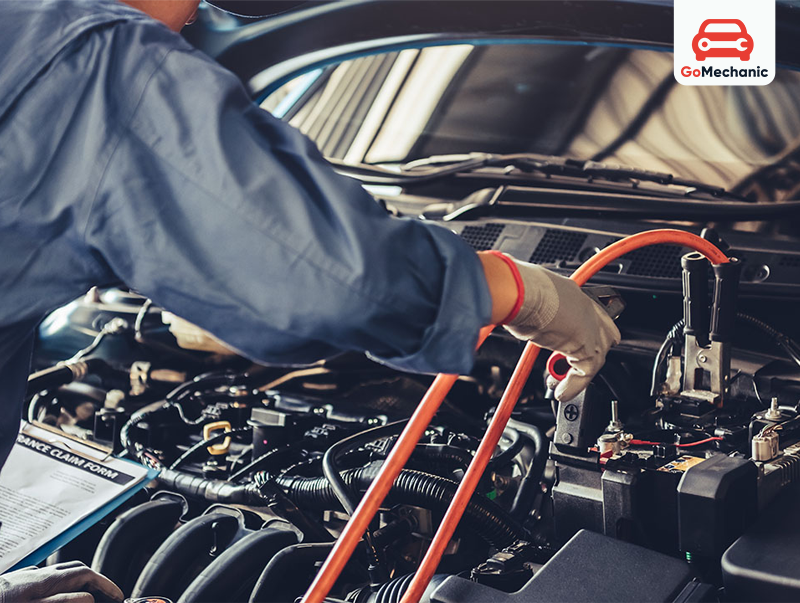
Electric vehicles have fewer mechanical parts compared to fossil fuel cars. This translates to less wear and tear, and reduced maintenance costs.
However, certain parts still require attention to maintain the smooth running of your EV. Proper maintenance helps avoid breakdowns, extends your vehicle’s life and maintains its resale value.
Key Components Requiring Maintenance
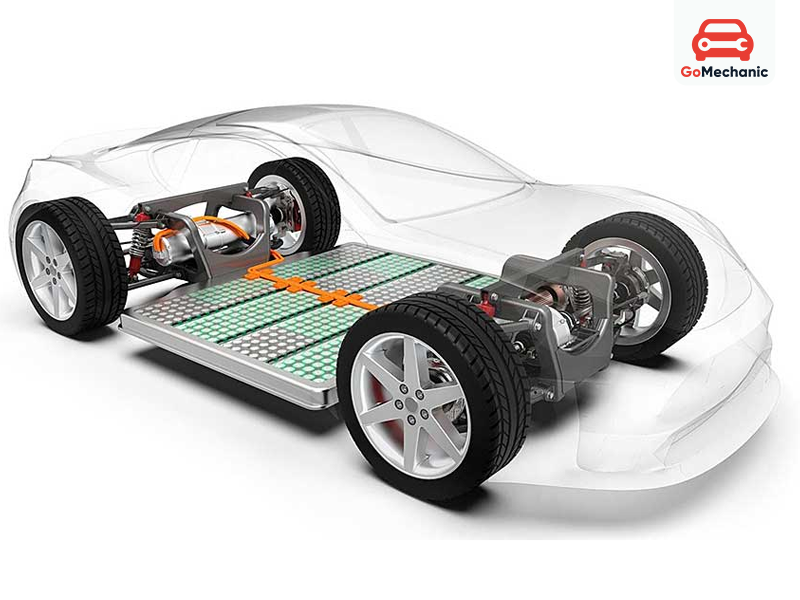
| Component | Why It’s Important | How to Maintain |
| Battery Pack | Powers the entire vehicle.
Improper care can reduce lifespan. |
Regular battery voltage tests
Avoid full charges or deep discharges Follow the recommended charging cycle. |
| Electric Motor | Drives the car
Requires less maintenance than an IC engine. |
Periodic testing of the motor and associated equipment. |
| Cooling System | Prevents overheating of vital components like the battery and motor. | Check the coolant level annually. Never ignore coolant leaks.
Make sure the cooling system is functioning correctly to avoid overheating damage |
| Regenerative Braking | Converts energy generated due to braking into electricity for battery
Reduces wear on brake pads. |
Inspect brake pads regularly, even though they wear more slowly than on traditional cars. |
| Software & Firmware | Software controls multiple features, from performance optimisation to safety. | Keep software and firmware updated.
These updates improve efficiency, extend battery life, and enhance overall performance. |
What Does Electric Car Maintenance Cost?
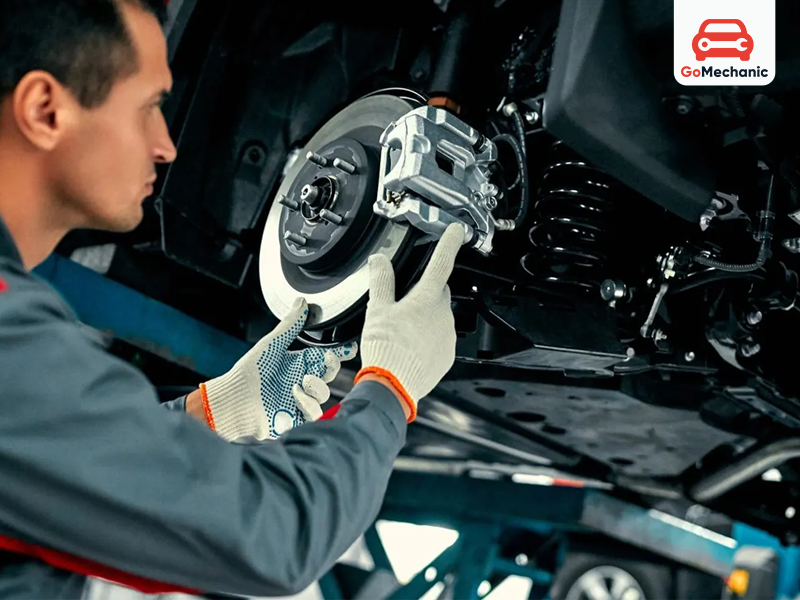
When it comes to maintenance costs, EVs are more economical than traditional cars due to the absence of oil changes and fewer moving parts.
However, battery pack repairs or replacements can be expensive. Here’s a breakdown of some common maintenance costs:
| Service | Cost Estimate (₹) | Why It’s Necessary for You |
| EV Service | ₹2,000 – ₹5,000 per checkup | Covers essential tests for the battery pack, brakes, and software.
Manufacturers often offer free services within the warranty period. |
| Cooling System Maintenance | ₹2,000 – ₹5,000 annually | Keep your EV’s most vital systems from overheating.
Ensuring the coolant levels are adequate. |
| Brake Pads Replacement | ₹4,000 – ₹10,000 depending on usage | replace brake pads to extend safety and braking system lifespan. |
| Battery Pack Replacement | ₹5 lakh – ₹7 lakh (if needed) | The battery is the most expensive component.
Regular maintenance extends its life, decreasing replacement chances. |
Importance of a Regular EV Maintenance Schedule
A consistent maintenance pattern helps increase the lifespan of your electric vehicle. Following the manufacturer’s recommendations reduces unexpected breakdowns.
Must Read: How Regular Car Maintenance Saves You Money in 2024
Most provide detailed schedules that cover important aspects like software updates and charging cycle management. A generic overall plan is given below:
| Monthly checks | Inspect tyres, brake pads, and fluid levels |
| Quarterly checks | Check Battery voltage with motor performance testing |
| Annual service | Complete software updates with cooling system inspections |
Tips to Increase Your EV’s Lifespan
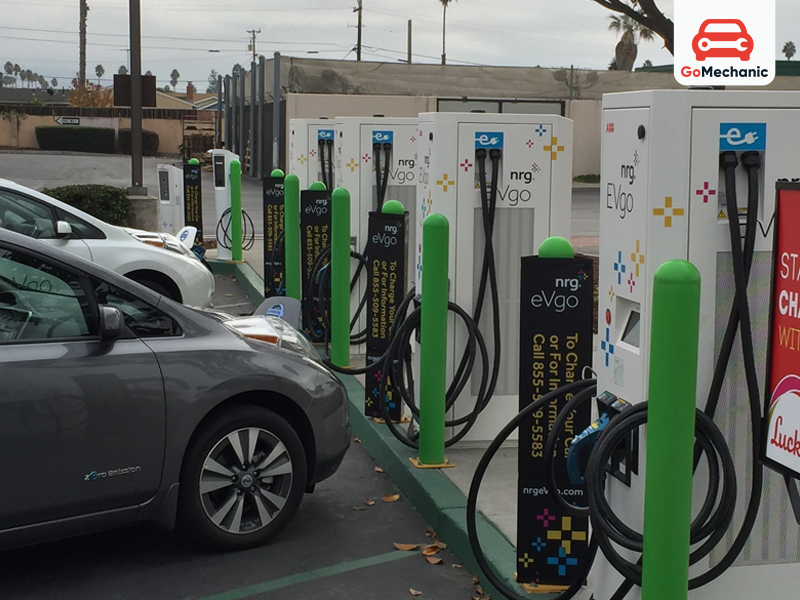
Extend the longevity of their vehicle by following these essential tips:
- Follow a Healthy Charging Cycle: Keep your battery level between 20% and 80% to prevent strain.
- Use quality Home/Public Chargers: Make sure you use quality EV chargers. Access reliable car electric services near me for charging station issues.
- Avoid Rapid Charging: Frequent rapid charging decreases battery lifespan. Stick to regular charging when possible.
- Maintain Brake Health: Ignoring brake care can lead to unexpected failures and costly repairs.
- Shade Parking: Park in shaded areas to protect the battery from excessive heat.
- Regular Servicing: Schedule regular EV service appointments with certified technicians.
Low Maintenance Electric Cars in India
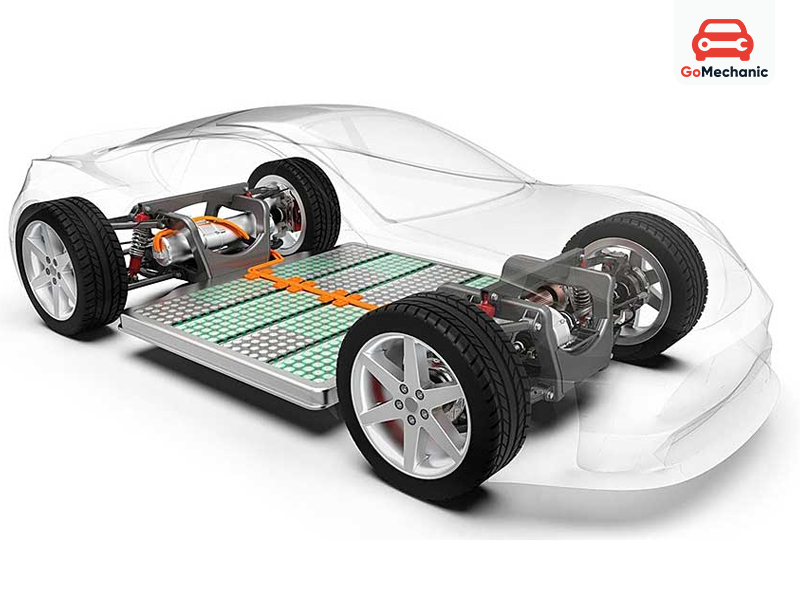
1. Tata Nexon EV
| Price
(Ex-Showroom) |
₹ 12.49 – 17.19 Lakh |
| Range | 312 km |
| Battery | 30.2 kWh |
| Key Features | Regenerative braking, software updates, reliable cooling system |
| Maintenance Costs | Low, fewer moving parts, durable battery and motor |
Also Read: 7 Reasons Behind Tata Nexon’s Success in India
2. Mahindra XUV 400 EV
| Price
(Ex-Showroom) |
₹ 15.49 – 17.69 Lakh |
| Range | 456 km |
| Battery | 39.4 kWh |
| Key Features | High range, regenerative braking, efficient cooling system |
| Maintenance Costs | Moderate, efficient parts, minimal wear and tear |
3. MG Comet EV
| Price
(Ex-Showroom) |
₹ 6.99- 9.53 Lakh |
| Range | 230 km |
| Battery | 17.3 kWh |
| Key Features | Compact design, easy to maintain, OTA updates |
| Maintenance Costs | Very low, simple design, fewer components |
4. Tata Tiago EV
| Price
(Ex-Showroom) |
₹ 7.99 – 11.49 Lakh |
| Range | 250 km |
| Battery | 24 kWh |
| Key Features | Affordable, regenerative braking, long battery life |
| Maintenance Costs | Low, fewer mechanical issues |
5. Citroen eC3
| Price
(Ex-Showroom) |
₹ 12.76 – 13.41 Lakh |
| Range | 320 km |
| Battery | 29.2 kWh |
| Key Features | Efficient battery, reliable software updates |
| Maintenance Costs | Moderate, durable components |
Conclusion
Electric cars have their own maintenance needs but require less overall work than a traditional vehicle. Keeping a check on key components is crucial for your car. Regular servicing, firmware updates, and following a consistent maintenance schedule helps increase the lifespan of your vehicle.
Proper care today means fewer surprises on the road tomorrow, ensuring you get the most out of your electric vehicle investment!





